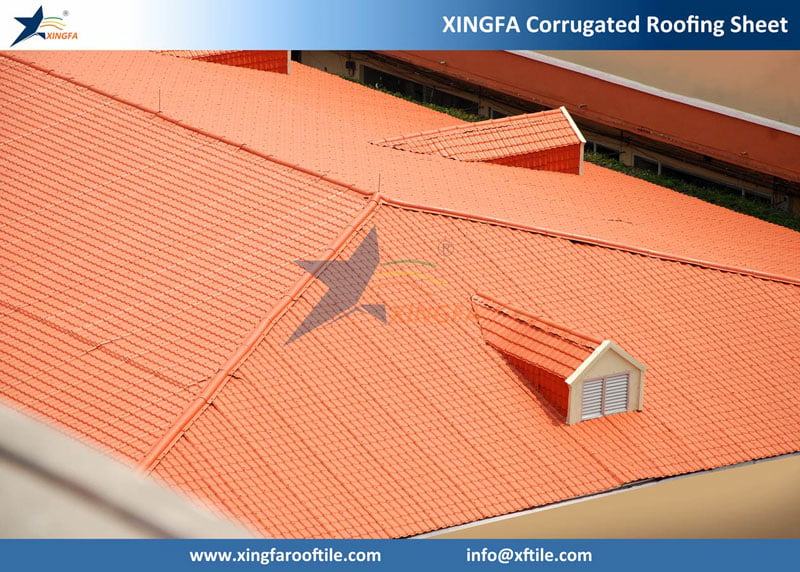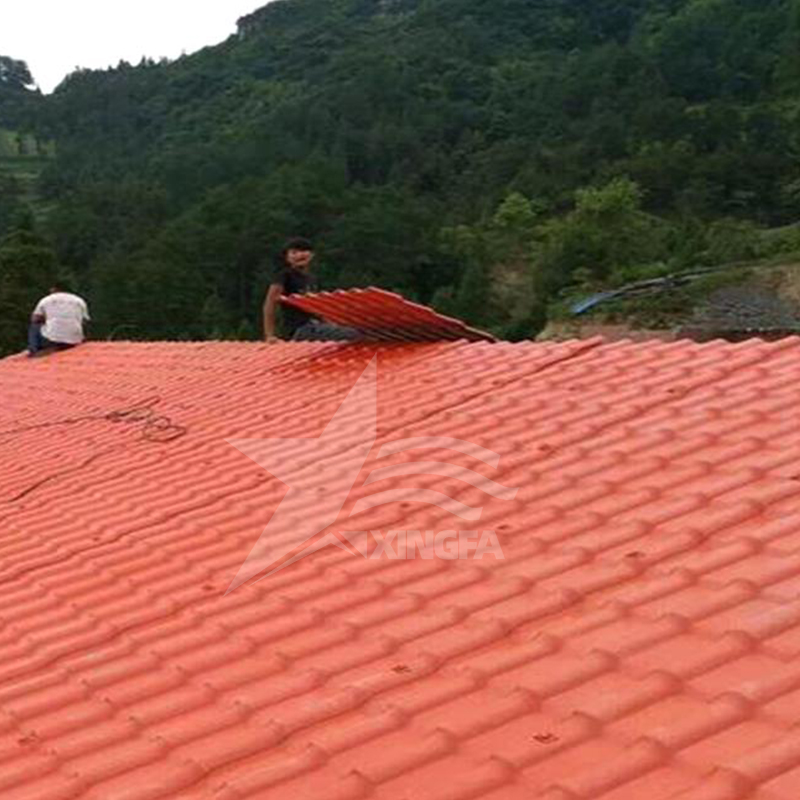Resin tiles are a popular building material, distinguished by their unique lotus effect that imparts exceptional self-cleaning capabilities. This lotus effect is inspired by the microscopic structure of lotus leaves, where tiny bumps and ridges cause water droplets to form nearly perfect spheres. As these droplets roll off the surface, they carry away dirt and debris, keeping the surface clean.

By emulating the microstructure of lotus leaves, resin tiles achieve a similar self-cleaning mechanism. The tiny undulations on their surface minimize the contact area between water droplets and the tile surface, allowing water to easily roll off and remove any adhered dust and grime. This specialized surface design ensures that rainwater can effectively clean resin tiles, reducing the frequency and cost of manual cleaning.

Due to their excellent self-cleaning properties, resin tiles have found widespread application in construction materials. They are suitable for use on roofs, walls, and other outdoor components, significantly lowering maintenance costs and extending the lifespan of buildings. Furthermore, this self-cleaning ability aligns with modern demands for environmental sustainability and energy efficiency, making resin tiles an ideal choice for green building materials.

Overall, the lotus effect enhances the functional and aesthetic value of resin tiles, offering a practical solution for maintaining cleaner, more durable structures while supporting eco-friendly construction practices.









